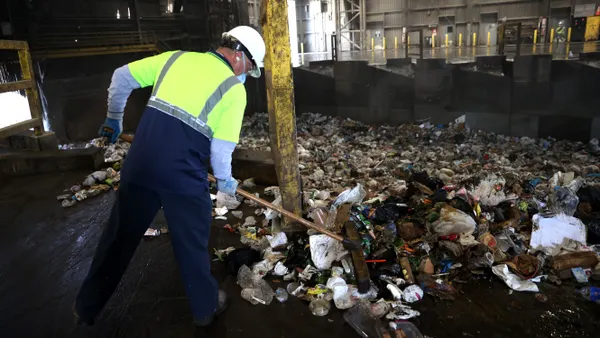Dive Brief:
- Prime-age men, those between 25 and 54, have left the U.S. workforce in unprecedented numbers since the 1960s, according to a report by the Federal Reserve Bank of Kansas City. The decline has worsened in recent years and, according to one economist, shows no signs of stopping.
- A decline in the demand for middle-skill workers accounts for most of the decline, writes Didem Tüzemen, but there's a "vicious cycle" at play. Skills demanded in the labor market are rapidly changing, and automation has rendered the skills of many less-educated workers obsolete, she proposes. This lack of job opportunities, in turn, may lead to depression and illness among displaced workers, and these health conditions may become further barriers to their employment.
- "Ending this vicious cycle — and avoiding further increases in the nonparticipation rate among prime-age men — may require equipping workers with the new skills employers are demanding in the face of rapid technological advancements," Tüzemen says.
Dive Insight:
Tüzemen's findings echo what employers already know: employees who want to survive the impending "perfect storm" involving automation will need to learn new skills. But few workers have taken steps to do so, research shows.
Employers who want a deep, capable talent pool have already taken it upon themselves to prepare. Some are partnering with schools; some have started apprenticeship programs; others (like many of those looking for cybersecurity talent) are training their own employees.
But many industries are grappling with a talent gap right now. Aging workforces, image gaps and a nationwide opioid crisis have left many looking for immediate solutions. Some have turned to untapped talent pools, while others have focused on rebranding entire fields. And at least one expert has suggested that its time to stop testing applicants for marijuana use.
In the waste industry, one of the biggest areas of concern as it relates to a labor shortage is qualified drivers. Waste Management, the largest company in the industry, confirmed during its latest earnings call that it awarded bonuses to employees largely to help with retention. Executives said about 50% of drivers and mechanics leave the company within their first two years.
Refuse collection continues to be the fifth-most dangerous job in the United States, but it still an essential function. Continuing to attract qualified job candidates could be difficult, but the industry could be aided by things like "Slow Down to Get Around" bills, which aim to improve safety for refuse workers. Additionally, the Solid Waste Association of North America is starting a small hauler outreach program through its chapter-based Safety Ambassadors.
This kind of action, from lawmaking bodies and industry groups, could help make working as a waste driver or waste collector more safe and, therefore, a job that employees are less likely to leave.












